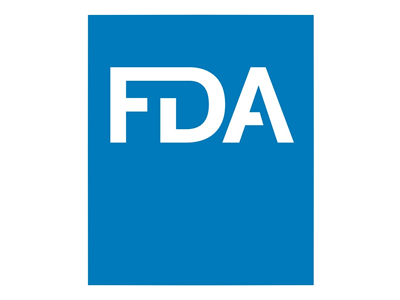FDA approves bosutinib for pediatric patients with chronic myelogenous leukemia

- September 27, 2023
- Drugs
On September 26, 2023, the Food and Drug Administration approved bosutinib (Bosulif, Pfizer) for pediatric patients 1 year of age and older with chronic phase (CP) Ph+ chronic myelogenous leukemia (CML) that is newly diagnosed (ND) or resistant or intolerant (R/I) to prior therapy. The FDA also approved a new capsule dosage form available in strengths of 50 mg and 100 mg.
View full prescribing information for Bosulif.
Efficacy was evaluated in the BCHILD trial (NCT04258943), a multicenter, nonrandomized, open-label trial conducted to identify a recommended bosutinib dose in pediatric patients with ND CP Ph+ CML and R/I CP Ph+ CML, to estimate the safety and tolerability and efficacy, and to evaluate bosutinib pharmacokinetics in this patient population. The trial enrolled 28 patients with R/I CP Ph+ CML treated with bosutinib at 300 mg/m2 to 400 mg/m2 orally once daily and 21 patients with ND CP Ph+ CML treated at 300 mg/m2 once daily.
The major efficacy outcome measures included major cytogenetic response (MCyR), complete cytogenetic response (CCyR), and major molecular response (MMR). For pediatric patients with ND CP Ph+ CML, the major (MCyR) and complete (CCyR) cytogenetic responses were 76.2% (95% CI: 52.8, 91.8) and 71.4% (95% CI: 47.8, 88.7), respectively. The MMR was 28.6% (95% CI: 11.3, 52.3) and the median duration of follow-up was 14.2 months (range 1.1, 26.3 months).
For pediatric patients with R/I CP Ph+ CML, the major (MCyR) and complete (CCyR) cytogenetic responses were 82.1% (95% CI: 63.1, 93.9) and 78.6% (95% CI: 59, 91.7), respectively. The MMR was 50% (95% CI: 30.6, 69.4). Among 14 patients who achieved MMR, two patients lost MMR after 13.6 and 24.7 months on treatment. The median follow-up was 23.2 months (range: 1, 61.5 months).
The most common adverse reactions in pediatric patients (≥20%) were diarrhea, abdominal pain, vomiting, nausea, rash, fatigue, hepatic dysfunction, headache, pyrexia, decreased appetite, and constipation. The most common laboratory abnormalities that worsened from baseline in pediatric patients (≥45%) were increased creatinine, increased alanine aminotransferase or aspartate aminotransferase, decreased white blood cell count, and decreased platelet count.
The recommended bosutinib dose for pediatric patients with ND CP Ph+ CML is 300 mg/m2 orally once daily with food and the recommended dosage for pediatric patients with R/I CP Ph+ CML is 400 mg/m2 orally once daily with food. For patients who are unable to swallow capsules, the contents of the capsules can be mixed with applesauce or yogurt.
This review used the Assessment Aid, a voluntary submission from the applicant to facilitate the FDA’s assessment.
This application was granted priority review and orphan drug designation. A description of FDA expedited programs is in the Guidance for Industry: Expedited Programs for Serious Conditions-Drugs and Biologics.
Healthcare professionals should report all serious adverse events suspected to be associated with the use of any medicine and device to FDA’s MedWatch Reporting System or by calling 1-800-FDA-1088.
For assistance with single-patient INDs for investigational oncology products, healthcare professionals may contact OCE’s Project Facilitate at 240-402-0004 or email OncProjectFacilitate@fda.hhs.gov.
Follow the Oncology Center of Excellence on X (formerly Twitter) @FDAOncologyExternal Link Disclaimer.

